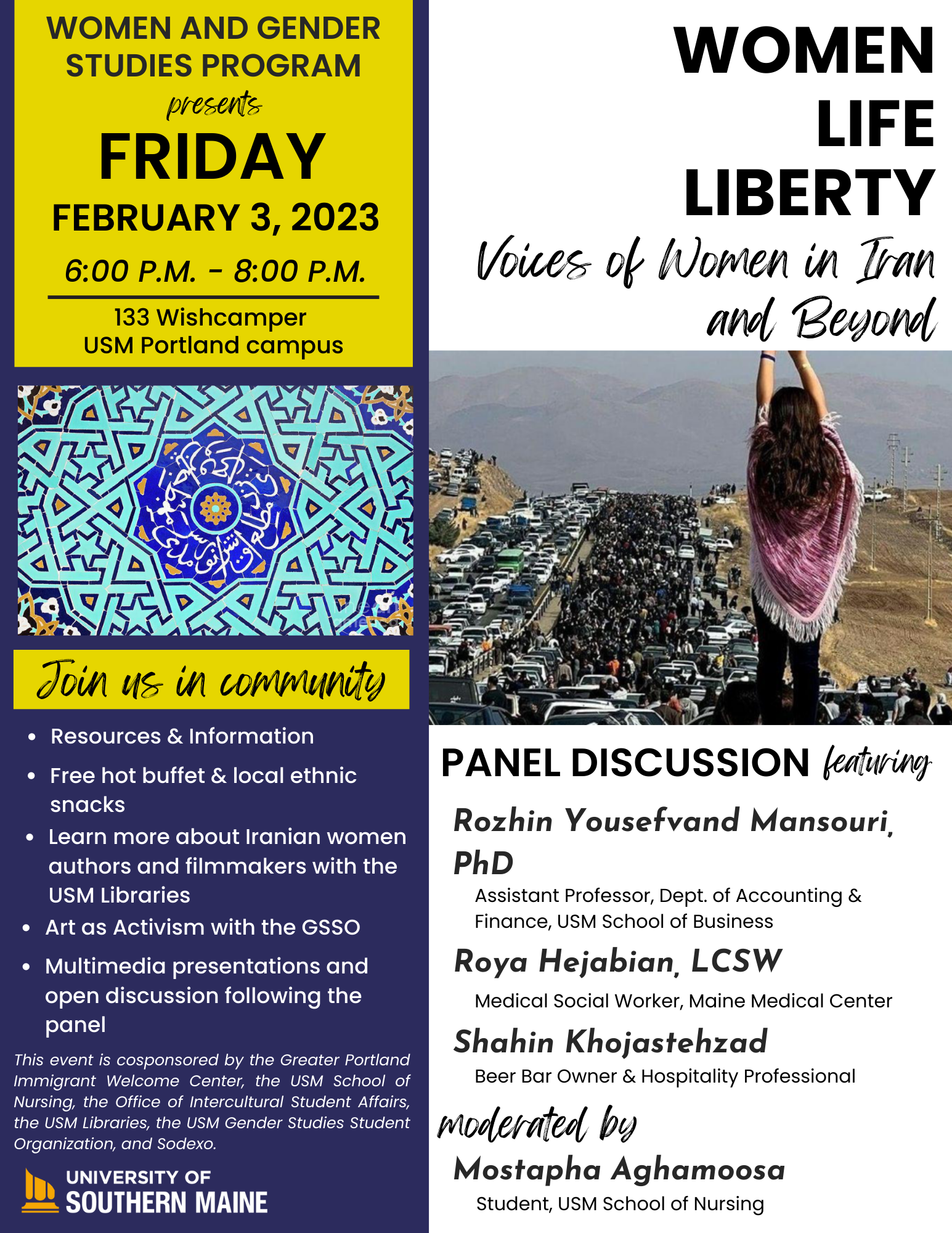Though February is the shortest month of the year, it looms large in our hearts and minds because it marks several significant annual occurrences. For one, it is Black History Month, and it includes Valentine’s Day. February happens to be when the 1979 Iranian Revolution took place giving birth to the establishment of the Islamic Republic of Iran.
Since its creation, the Islamic Republic of Iran has ignited the hopes and fears of the Iranian people as well as those of Iran’s regional onlookers. After Iran’s monarch abdicated power upon fleeing the nation, Ayatollah Khomeini returned from exile with promises of independence, freedom, democracy, and a classless society based on Islamic teachings. Since then, Iranian women have witnessed Muslim feminists voluntarily donning revolutionary hijab as a show of solidarity with the young revolution and Islamic identity, women voting, enrolling in university, becoming doctors, engineers, civil servants, all the way to the office of the vice-president, teachers, and even cab drivers.
Nevertheless, the Islamic Republic of Iran also disenfranchises Iranian women. Initially there was the repeal of the Family Protection Law which legally rectified women’s rights in the context of divorce and child custody. These days, under the Islamic Republic of Iran’s legal system, a woman’s legal worth is half that of a man’s; a woman must wear compulsory hijab; a woman cannot neither sing nor dance in public; a woman who seeks the company of the opposite sex risks punishment if it is outside the bounds of marriage; a woman who would leave Iran for any reason requires permission from either her father or husband. As such, the initial enthusiasm of some women in Iran for the revolution has turned into disappointment and anger that we witness in streets of Iran.
In the decades since the establishment of the Islamic Republic of Iran, the Iranian population has engaged in war with neighboring Iraq, witnessed wars in neighboring countries, endured privations from trade sanctions, addressed their rulers with grievances, sought their dignity at the ballot box, petitioned for referendums and reform to shape their society to their liking or emigrated to other nations generating the largest Iranian diaspora in all of Iran’s thousand-year history. For all these reasons and more, Iran is again erupting with protests for change and a revolution.
In honor of the recent women-centric revolts in Iran, the Women and Gender Studies Program at USM will present a free teach in, “Woman, Life, Liberty: Voices of Women in Iran and Beyond.” This student-led event will feature some hor d’oeuvres, a panel discussion followed by open discussion, art as activism with the Gender Studies Student Organization, and multimedia all of which are either from or about Iran. The panel will comprise members of the Iranian diaspora and moderator Mostapha “Stav” Aghamoosa, a nontraditional nursing student at USM and former professional scientist from the human diagnostics and biotech industries of Southern Maine.
The event will take place Friday February 3rd, 2023, in 133 Wishcamper on the USM Portland Campus from 6:00 pm to 8:00 pm. Cosponsors include the Greater Portland Immigrant Welcome Center, the USM School of Nursing, the Office of Intercultural Student Affairs, the USM Libraries, the USM Gender Studies Student Organization and Sodexo.

